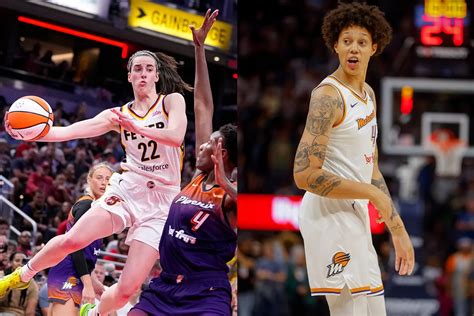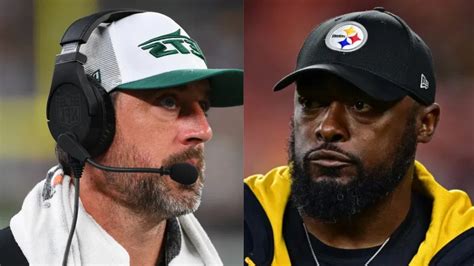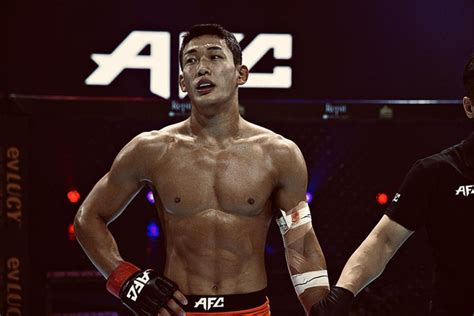
Brittney Griner’s recent remarks regarding Caitlin Clark and the WNBA, specifically suggesting that Clark’s race and sexual orientation are factors in her popularity, have ignited a significant backlash from conservative commentators and online personalities. Griner’s assessment of Clark’s impact on the league, contrasting it with her own experiences and those of other players, has spurred accusations of injecting divisive identity politics into sports.
Brittney Griner, the Phoenix Mercury center and two-time Olympic gold medalist, offered her perspective on the overwhelming attention surrounding rookie Caitlin Clark, the Indiana Fever guard who has shattered collegiate scoring records and brought unprecedented viewership to the WNBA. While acknowledging Clark’s talent and potential, Griner posited that race and sexual orientation have played a significant, if unspoken, role in Clark’s meteoric rise to fame. This viewpoint, expressed in various interviews and social media discussions, has been met with both support and sharp criticism.
Conservative voices, in particular, have seized upon Griner’s comments as evidence of a perceived “woke” agenda permeating sports and media. They argue that Griner’s remarks diminish Clark’s achievements by attributing her success to factors other than her skills and hard work. Social media platforms have become battlegrounds, with users debating the validity of Griner’s claims and the motivations behind her statements.
The controversy highlights ongoing tensions within the sports world concerning race, gender, and sexual orientation, as well as the broader cultural debates surrounding identity politics and meritocracy. Griner’s comments have opened a Pandora’s Box of discussions about who gets celebrated and why, forcing a critical examination of the narratives that shape public perception of athletes.
The furor began to escalate when excerpts from a recent interview with Griner started circulating online. In these excerpts, Griner directly addressed the disparity in media coverage and fan enthusiasm between Clark and other WNBA players, particularly Black players who have historically been the backbone of the league. “It’s no secret,” Griner stated in one interview, “that race and, you know, sexual orientation play a part in how popular someone is. It’s just the truth. And it sucks, but it is what it is.”
Griner’s supporters argue that her comments were not intended as an attack on Clark, but rather as a commentary on the systemic inequalities that exist within the sports industry. They point out that Black female athletes have often been overlooked or marginalized, despite their exceptional talent and contributions. By raising these issues, Griner aims to foster a more inclusive and equitable environment in the WNBA and beyond.
However, critics contend that Griner’s analysis is overly simplistic and potentially harmful. They argue that Clark’s popularity is primarily driven by her exceptional skill set, her captivating playing style, and her ability to connect with fans on a personal level. Attributing her success to race and sexual orientation, they claim, not only diminishes Clark’s accomplishments but also perpetuates harmful stereotypes.
Prominent conservative figures have weighed in on the controversy, using their platforms to condemn Griner’s remarks and accuse her of promoting division. Some have called for boycotts of the WNBA, while others have launched online campaigns to discredit Griner and her views. The hashtag #BoycottWNBA has gained traction on social media, fueled by anger over Griner’s comments and a broader sense of frustration with what some perceive as the politicization of sports.
The situation is further complicated by Griner’s own history and experiences. As a Black, openly gay athlete who was previously detained in Russia on drug charges, Griner has faced significant adversity and has become a symbol of resilience and social justice advocacy. Her outspokenness on issues of race, gender, and LGBTQ+ rights has earned her both admiration and criticism.
The controversy surrounding Griner’s comments underscores the challenges of navigating complex issues of identity and representation in the public sphere. While some believe that Griner is bravely speaking truth to power, others accuse her of stoking division and undermining the achievements of a talented young athlete. The debate is likely to continue to rage on, fueled by social media, cable news, and the broader cultural wars that define contemporary society.
One aspect of the debate centers on the historical context of the WNBA and its relationship with its fan base. The WNBA has long struggled to attract mainstream attention, despite the exceptional talent of its players. Some argue that the league’s marketing efforts have historically failed to adequately promote its stars, particularly Black players who have been instrumental in the league’s success. Others suggest that the league’s predominantly female and LGBTQ+ fan base has been a factor in its marginalization within the broader sports landscape.
Clark’s arrival in the WNBA has undoubtedly changed the game, both on and off the court. Her ability to draw massive crowds, generate record-breaking television ratings, and sell merchandise at unprecedented levels has brought a new level of visibility and financial success to the league. However, this newfound attention has also raised questions about who benefits from it and whether all players are being given equal opportunities to shine.
Griner’s comments, while controversial, have forced a much-needed conversation about these issues. By acknowledging the role of race and sexual orientation in shaping public perception of athletes, she has challenged the prevailing narratives and called for a more nuanced understanding of the dynamics at play. Whether her comments will ultimately lead to positive change remains to be seen, but they have undoubtedly sparked a debate that is long overdue.
Further complicating the matter is the issue of “likeability” and how it intersects with race and gender. Studies have shown that Black women, in particular, often face unique challenges in terms of public perception. They are often held to higher standards than their white counterparts and are more likely to be judged harshly for perceived flaws or missteps. This can make it difficult for them to gain widespread acceptance and support, even when they are exceptionally talented and accomplished.
The debate surrounding Griner’s comments also highlights the limitations of social media as a platform for nuanced discussion. Complex issues are often reduced to simplistic sound bites and polarized opinions, making it difficult to have productive conversations. The anonymity afforded by social media can also embolden individuals to express hateful or offensive views, further exacerbating tensions.
In the wake of the controversy, many WNBA players have come to Clark’s defense, praising her talent and dedication to the sport. They have also acknowledged the importance of addressing issues of race and inequality within the league. Some have called for greater unity and solidarity among players, urging them to work together to create a more inclusive and equitable environment.
The WNBA itself has remained largely silent on the issue, perhaps wary of alienating fans on either side of the debate. However, the league has taken steps to promote diversity and inclusion in recent years, including launching initiatives to support LGBTQ+ athletes and address issues of racial justice. Whether these efforts will be enough to address the underlying tensions remains to be seen.
As the WNBA season progresses, it will be interesting to see how the controversy surrounding Griner’s comments plays out. Will it lead to meaningful changes within the league? Will it affect Clark’s performance or popularity? Will it spark a broader conversation about race, gender, and inequality in sports? Only time will tell.
The incident has also triggered discussions about media representation and the narratives that are pushed forward. Some critics point out that media outlets tend to focus on narratives that reinforce existing power structures, often overlooking the achievements of athletes from marginalized communities. This can perpetuate stereotypes and make it difficult for these athletes to gain the recognition they deserve.
Moreover, the Griner-Clark situation has brought attention to the pressure faced by athletes to speak out on social and political issues. While some athletes embrace this role, others are hesitant, fearing backlash from fans, sponsors, or their teams. The decision to speak out is a personal one, and there is no easy answer as to whether it is the right thing to do.
In conclusion, the controversy surrounding Brittney Griner’s comments about Caitlin Clark has exposed deep-seated tensions within the sports world and broader society. While the debate is likely to continue to rage on, it has also created an opportunity for meaningful dialogue and positive change. By acknowledging the complex issues at play and working together to create a more inclusive and equitable environment, the WNBA and the sports world as a whole can become a more welcoming and representative place for all athletes.
Expanded Context and Analysis
The controversy surrounding Brittney Griner’s comments on Caitlin Clark extends beyond a simple disagreement about the reasons for Clark’s popularity. It touches upon several complex and intertwined issues: the historical context of the WNBA, the impact of race and sexual orientation on media coverage and fan engagement, the challenges faced by Black female athletes, and the broader cultural debates about identity politics and meritocracy.
Historically, the WNBA has struggled to gain mainstream recognition and financial stability. Despite the exceptional talent of its players, the league has often been overshadowed by its male counterpart, the NBA. Several factors have contributed to this, including limited marketing resources, a lack of media coverage, and a perception that women’s sports are less exciting or competitive than men’s sports.
Moreover, the WNBA has a predominantly Black and LGBTQ+ fan base, which some argue has contributed to its marginalization within the broader sports landscape. In a society that often prioritizes white, male athletes, the WNBA has faced an uphill battle in terms of attracting mainstream attention and support.
Caitlin Clark’s arrival in the WNBA has undoubtedly been a game-changer. Her exceptional scoring ability, her captivating playing style, and her ability to connect with fans on a personal level have brought a new level of visibility and financial success to the league. However, this newfound attention has also raised questions about who benefits from it and whether all players are being given equal opportunities to shine.
Griner’s comments, while controversial, have forced a much-needed conversation about these issues. By acknowledging the role of race and sexual orientation in shaping public perception of athletes, she has challenged the prevailing narratives and called for a more nuanced understanding of the dynamics at play.
One of the key points of contention is whether Clark’s popularity is solely based on her talent and hard work, or whether other factors are at play. Critics of Griner’s comments argue that attributing Clark’s success to race and sexual orientation diminishes her accomplishments and perpetuates harmful stereotypes. They argue that Clark has earned her fame through her exceptional skills and her dedication to the sport.
However, supporters of Griner’s comments argue that it is naive to ignore the role of race and sexual orientation in shaping public perception. They point out that Black female athletes have often been overlooked or marginalized, despite their exceptional talent and contributions. They argue that Clark’s whiteness and her perceived heterosexuality may have made her more palatable to a mainstream audience, which has historically been less receptive to Black and LGBTQ+ athletes.
The issue of “likeability” is also relevant to this discussion. Studies have shown that Black women, in particular, often face unique challenges in terms of public perception. They are often held to higher standards than their white counterparts and are more likely to be judged harshly for perceived flaws or missteps. This can make it difficult for them to gain widespread acceptance and support, even when they are exceptionally talented and accomplished.
The Griner-Clark situation also highlights the limitations of social media as a platform for nuanced discussion. Complex issues are often reduced to simplistic sound bites and polarized opinions, making it difficult to have productive conversations. The anonymity afforded by social media can also embolden individuals to express hateful or offensive views, further exacerbating tensions.
In the wake of the controversy, many WNBA players have come to Clark’s defense, praising her talent and dedication to the sport. They have also acknowledged the importance of addressing issues of race and inequality within the league. Some have called for greater unity and solidarity among players, urging them to work together to create a more inclusive and equitable environment.
The WNBA itself has remained largely silent on the issue, perhaps wary of alienating fans on either side of the debate. However, the league has taken steps to promote diversity and inclusion in recent years, including launching initiatives to support LGBTQ+ athletes and address issues of racial justice. Whether these efforts will be enough to address the underlying tensions remains to be seen.
As the WNBA season progresses, it will be interesting to see how the controversy surrounding Griner’s comments plays out. Will it lead to meaningful changes within the league? Will it affect Clark’s performance or popularity? Will it spark a broader conversation about race, gender, and inequality in sports? Only time will tell.
Ultimately, the Griner-Clark controversy is a reminder that the sports world is not immune to the broader social and political issues that shape our society. Race, gender, and sexual orientation continue to play a significant role in shaping public perception and opportunities, even in a field that is ostensibly based on merit. By acknowledging these issues and working together to create a more inclusive and equitable environment, the WNBA and the sports world as a whole can become a more welcoming and representative place for all athletes.
The Role of Media Representation
Another crucial aspect of the Griner-Clark situation is the role of media representation. Media outlets play a significant role in shaping public perception of athletes, and their choices about which athletes to cover and how to cover them can have a profound impact.
Some critics argue that media outlets tend to focus on narratives that reinforce existing power structures, often overlooking the achievements of athletes from marginalized communities. This can perpetuate stereotypes and make it difficult for these athletes to gain the recognition they deserve.
For example, studies have shown that Black athletes are often portrayed differently than white athletes in the media. Black athletes are more likely to be described in terms of their physical attributes, while white athletes are more likely to be described in terms of their intelligence and leadership skills. This can reinforce harmful stereotypes about Black people being inherently athletic but lacking in other qualities.
Similarly, LGBTQ+ athletes often face challenges in terms of media representation. They may be hesitant to come out publicly, fearing that it will negatively impact their careers. And even when they do come out, they may face discrimination and prejudice from media outlets and fans.
In the case of Caitlin Clark, her media coverage has been overwhelmingly positive, focusing on her exceptional talent and her ability to attract new fans to the WNBA. However, some critics argue that this coverage has come at the expense of other WNBA players, particularly Black players who have been in the league for many years and have made significant contributions.
It is important for media outlets to be mindful of the narratives they are pushing forward and to ensure that they are providing fair and accurate coverage of all athletes, regardless of their race, gender, or sexual orientation.
The Pressure on Athletes to Speak Out
Finally, the Griner-Clark situation has brought attention to the pressure faced by athletes to speak out on social and political issues. In today’s highly polarized society, athletes are increasingly expected to take a stand on issues ranging from racial justice to LGBTQ+ rights to political elections.
While some athletes embrace this role, others are hesitant, fearing backlash from fans, sponsors, or their teams. The decision to speak out is a personal one, and there is no easy answer as to whether it is the right thing to do.
On the one hand, athletes have a platform to reach millions of people and can use their influence to raise awareness about important issues. They can also serve as role models for young people, demonstrating that it is possible to be both successful and socially conscious.
On the other hand, speaking out on social and political issues can be risky. Athletes may face criticism from fans who disagree with their views, and they may even lose sponsors or endorsements. They may also face pressure from their teams to remain silent, as teams often prefer to avoid controversy.
In the case of Brittney Griner, her outspokenness on issues of race, gender, and LGBTQ+ rights has earned her both admiration and criticism. She has been praised for her courage and her willingness to speak truth to power, but she has also been accused of being divisive and of alienating fans.
Ultimately, the decision of whether to speak out on social and political issues is a personal one, and each athlete must weigh the potential benefits and risks before making a decision.
FAQ
1. What were Brittney Griner’s comments that sparked the controversy?
Brittney Griner suggested that Caitlin Clark’s race (white) and sexual orientation (perceived as heterosexual) have contributed to her popularity and increased media coverage in the WNBA, compared to other players, particularly Black players and those openly LGBTQ+.
2. Why are Griner’s comments considered controversial?
Griner’s comments are controversial because they touch upon sensitive issues of race, sexual orientation, and meritocracy in sports. Critics argue that she diminishes Clark’s accomplishments by attributing her success to factors other than her skill and hard work. Supporters believe she is highlighting systemic inequalities and the historical marginalization of Black female athletes.
3. How have conservatives reacted to Griner’s statements?
Conservative commentators and online personalities have largely criticized Griner’s remarks, accusing her of injecting divisive identity politics into sports and downplaying Clark’s achievements. Some have called for boycotts of the WNBA in response.
4. Has Caitlin Clark responded to Griner’s comments directly?
As of the latest information available, Caitlin Clark has not issued a direct, public response to Brittney Griner’s specific comments. Other WNBA players have spoken out, some defending Clark and others acknowledging the importance of addressing issues of race and inequality within the league.
5. What is the broader context of this controversy within the WNBA?
The controversy highlights ongoing tensions within the WNBA concerning race, gender, and sexual orientation. The league has historically struggled to attract mainstream attention despite the talent of its players, and the increased attention Clark has brought raises questions about equity and representation within the league. It also highlights the pressure on athletes to speak out on social and political issues, and the potential backlash they may face.









